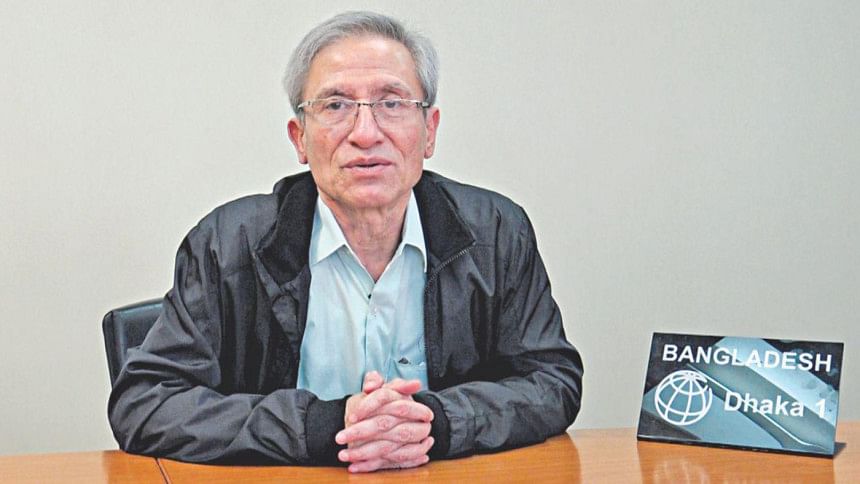Make inflation tolerable: Zahid Hussain

The government should control import demand and cut public expenditure to lessen pressure facing the economy as well as expand social safety net programmes to help poor and low-income households cope with higher inflation, said Zahid Hussain, a noted economist.
He says maintaining macroeconomy stability is the main challenge for the government.
"In order to restrain the domestic demand, the budget deficit has to be very limited. If it is raised to a large extent, it would add to the heat facing demand."
"The budget deficit is not a major part of domestic demand, but the question is whether you add fuel to the fire."
The former lead economist of the World Bank's Dhaka office says if prices of diesel and fertiliser are not adjusted upwards in line with international prices, the subsidy spending will almost double.
"This means for every Tk 8 of expenditure, Tk 1 will be spent on subsidies. It will leave the government with almost no scope to do anything in other areas."
"But if diesel and fertiliser prices are adjusted, inflation will spread because their prices are contagious. It would increase industrial production and transportation cost. So, the practical approach would be adjusting prices gradually."
He argued that subsidies are untargeted, meaning it benefits all, the rich and the poor alike.
"It is tough to justify it from the economics point of view."
He says higher commodities prices are unlikely to cool off until the end of 2023, so some adjustments might be unavoidable.
"There has to be structural reform in this area. Pricing can't be ad hoc basis forever."
The economist says the government needs to focus on making the inflationary pressures tolerable.
The major social safety net programmes such as the stipend programme for the primary school students and the old-age support scheme have to be strengthened in terms of expanding coverage and increasing allowance.
"There is no safety net programme for the urban poor, so one scheme should be launched for them," said Hussain.
Hussain says the health, education and social protection sectors have been neglected in terms of expenditure to GDP ratio.
Reforms have to be accelerated in the areas of investment climate, trade logistics, tax system, and the payment system of social protection, according to Hussain.
He also raises questions about the delay in project implementation.
"If a project takes so long, the cost goes up and the return on the investment is delayed."

 For all latest news, follow The Daily Star's Google News channel.
For all latest news, follow The Daily Star's Google News channel. 



Comments